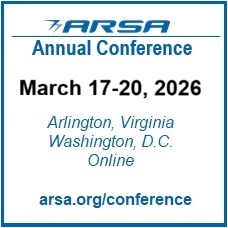FAA Consistency Board May Rein In Regulatory “Wild West”
As the FAA continues to hammer out the details for how the Regulatory Consistency Communication Board (RCCB) will operate in the long-run, the board is addressing regulatory inconsistencies raised by industry stakeholders. The FAA created the RCCB based on recommendations of the Consistency of Regulatory Interpretation Aviation Rulemaking Committee (CRI ARC – see story below). The RCCB’s goal is to provide clarification to FAA personnel, certificate/approval holders and applicants on issues that span the jurisdiction of multiple FAA divisions.
Most recently, the RCCB issued a decision clarifying whether notes in Type Certificate Data Sheets (TCDS) are mandatory or provided for informational purposes. According to the agency, there is a common misconception that regulatory requirements are only specified in the main body of TCDSs and that the notes are intended to contain reminders or information of convenience. The RCCB clarified that TCDS notes can indeed be mandatory; however, notes are mandatory (i.e., are required to be followed) only if they are supported by a regulation. If not, the note is unenforceable.
For instance, a note in a TCDS may state that an “aircraft shall be maintained in accordance with the manufacturer’s maintenance manual.” Although the verb “shall” makes the note sound like it must be followed, the FAA explained that such statement is for informational purposes only. The agency reasoned that 14 CFR § 43.13(a) provides for the use of the current manufacturer’s maintenance manual, instructions for continued airworthiness or other methods, techniques and practices acceptable to the administrator. The above-referenced note only provides one regulatory source of information and, therefore, is not supported by the regulation and provided for informational purposes only.
This vexing issue has caused problems for maintenance providers seeking to develop independent repairs and is particularly suited for the RCCB to address because it requires collaboration from both the FAA’s Flight Standards and Aircraft Certification Services. Only time will tell, but the RCCB may actually end – or at least rein in – the wild west of regulatory interpretation.
To see decisions issued by the RCCB, click here.
CRI ARC Members Add Clarity to RCCB Proposal
August 30, 2016
On Aug. 24, ARSA joined five other members of the Consistency in Regulatory Interpretation Aviation Rulemaking Committee (CRI ARC) on comments on FAA Draft Order 8000.RCCB, “Regulatory Consistency Communication Board (RCCB).”
The group praised the agency for creating the RCCB, one of the CRI ARC’s six recommendations. To assist in that process, the submission provided a series of suggestions to eliminate vagueness from the board’s structure and authority as described in the draft order.
“While the draft order provides a more streamlined process, the devil is in the details,” the comments said. “The procedure must be in enough detail to ensure it can be followed, audited and appropriate metrics gathered for review and analysis for validity and/or improvement of the process or its outcomes.”
The group’s specific suggestions include establishing a clear decision-making hierarchy, delineating the RCCB’s role with regard to other vehicles for regulatory resolution (e.g., requests for legal interpretations, CSI submissions) and identifying a person or position ultimately responsible for ensuring intended outcomes. These improvements will enable the board to effectively promote consistency of regulatory interpretation and application in line with the CRI ARC’s original report.
The association’s regulatory team helped organized signatories on the comments, which were drafted by the General Aviation Manufacturers Association. Representatives from the Aerospace Industries Association, Airlines for America, the National Air Carrier Association and the Regional Airline Association also signed.
To read the comments in full, click here.
To see all of the ways ARSA works as the voice of the aviation maintenance industry, visit the ARSA Works page.








